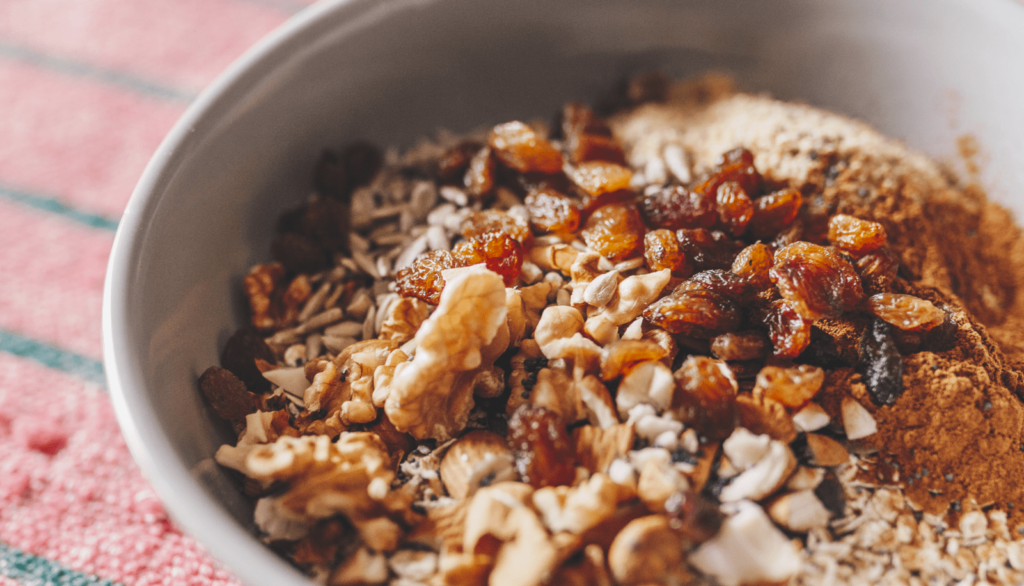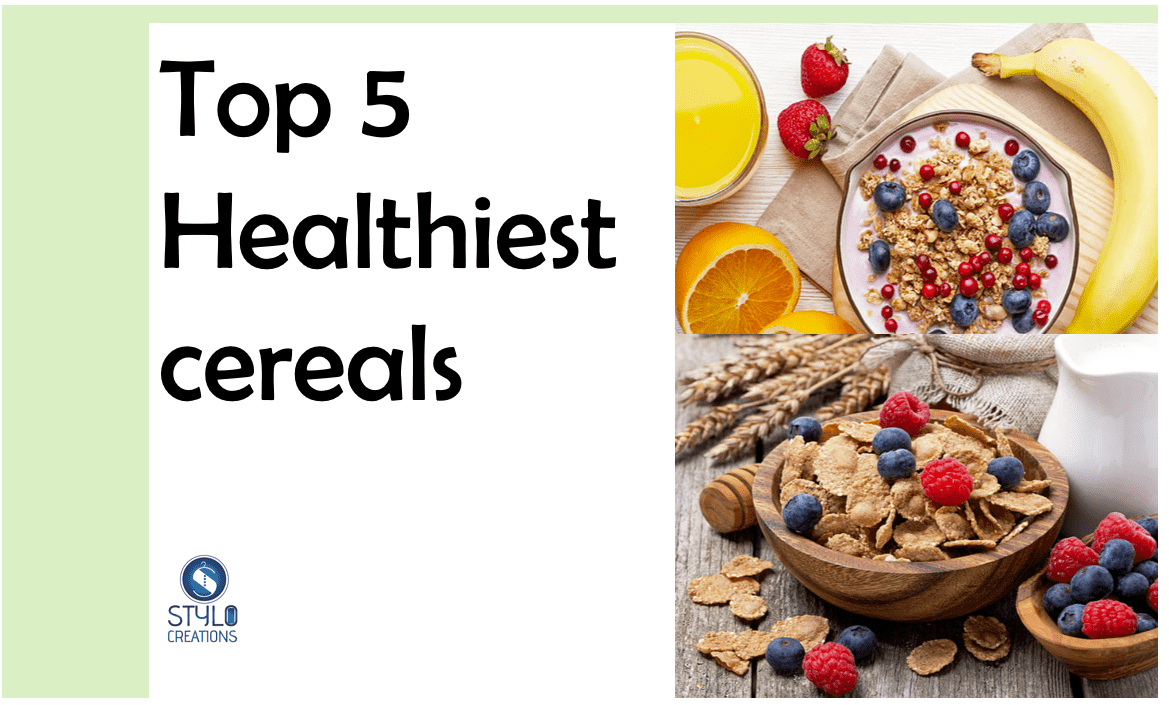Healthiest Cereals: 5 different types to boost your breakfast
Introduction:
Cereals are most common breakfast choice for many people, as they are quick, easy, and convenient. However, not all cereals are created equal when it comes to nutrition.
Pro Tip: Many cereals are high in sugar and low in fiber, which can lead to a spike in blood sugar levels and leave you feeling hungry again soon after eating.
In this article, we will be discussing about the various healthy cereals and their benefits.

What are Healthiest Cereals?
Healthy cereals are those that are made with whole grains and contain low amounts of sugar, artificial colors, and preservatives.
Whole grains are an excellent source of fiber, which can help regulate blood sugar levels, improve digestion, and keep you feeling full for longer.
A cereal with less sugar and artificial additives will help maintain a balanced and healthy diet. Whole grain cereals provide essential nutrients like B vitamins, iron, and fiber.
Benefits of Healthy Cereals:
- Lowers the risk of heart disease:
- Whole-grain cereals are an excellent source of dietary fiber, which has been shown to lower the risk of heart disease.
- Fiber-rich foods such as cereals help reduce cholesterol levels, blood pressure, and inflammation, all of which are risk factors for heart disease. A study conducted by Harvard School of Public Health found that those who ate more whole-grain cereals had a lower risk of heart disease.
- Helps in weight management:
- Healthy cereals can be a great addition to your diet if you’re looking to manage your weight. High fiber content in whole-grain cereals helps to keep you feeling full for longer, which reduces your overall calorie intake.
- A study conducted by the American Journal of Clinical Nutrition found that those who ate a higher-fiber diet lost more weight and had better blood sugar control than those who ate a lower-fiber diet.
- Improves Digestion:
- Whole-grain cereals are rich in fiber, which promotes regular bowel movements and can help prevent constipation.
- The fiber in cereals can also help feed the good bacteria in your gut, which can improve gut health and overall digestion.
- Provides essential nutrients:
- Healthy cereals are a great source of essential nutrients such as B vitamins, iron, and zinc.
- These nutrients are important for maintaining good health and preventing deficiencies.
- For example, iron is essential for the production of red blood cells, while B vitamins play a vital role in energy production.
- Reduces the risk of type 2 diabetes:
- High sugar consumption has been linked to an increased risk of type 2 diabetes.
- Therefore, choosing a low-sugar cereal that is high in fiber can help reduce the risk of developing this condition.
- A study published in the Journal of Nutrition found that consuming whole-grain cereals was associated with a lower risk of type 2 diabetes.
In Todays competitive market, there are so any brands available for cereals, More than selecting the right one, it mostly important to avoid selecting the wrong ones….
Here are some of the healthiest cereals and their benefits:-
- Oatmeal:
- Oatmeal is a popular breakfast choice and is made from whole-grain oats. It is an excellent source of fiber, protein, and essential nutrients such as iron and zinc.
- The beta-glucan fiber in oats has been shown to lower cholesterol levels and improve heart health.
- Oats are also a great option for those with celiac disease or gluten sensitivity, as they are naturally gluten-free.
One of the main benefits of oatmeal is its high fiber content. A single serving of oatmeal can provide up to 4 grams of fiber, which is about 16% of the daily recommended intake.
This fiber can help regulate blood sugar levels and keep you feeling full for longer, which can aid in weight management. Oatmeal also contains antioxidants, which can help protect against chronic diseases.
Our Tip: 50 Grams Rolled oats, 1/2 scoop whey protein, soaked almonds, mix with milk or water. This is a wonderful breakfast to start your day.
- Bran Flakes: Bran flakes are a high-fiber cereal made from wheat bran. They are low in sugar and are an excellent source of fiber, B vitamins, and iron.
- The high fiber content in bran flakes helps to promote regular bowel movements and can help reduce the risk of heart disease.
Some of the main benefits of bran flakes is their high fiber content. A single serving of bran flakes can provide up to 7 grams of fiber, which is about 28% of the daily recommended intake.
This fiber can help regulate blood sugar levels and keep you feeling full for longer, which can aid in weight management. Bran flakes are also a good source of iron, which is essential for the production of red blood cells.
- Wheat Flakes: Wheat flakes are another high-fiber cereal made from whole-grain wheat. They are a good source of B vitamins, iron, and fiber. Wheat flakes are also low in sugar, making them a great option for those looking to reduce their sugar intake.
Wheat flakes is their high fiber content. A single serving of wheat flakes can provide up to 5 grams of fiber, which is about 20% of the daily recommended intake.
.Wheat flakes are also a good source of B vitamins, which play a vital role in energy production.
- Corn Flakes: Corn flakes are a popular breakfast cereal made from milled corn. They are low in sugar and fat, making them a great option for those looking to reduce their calorie intake. Corn flakes are also a good source of essential nutrients such as iron, zinc, and B vitamins.
One of the main benefits of corn flakes is their low calorie content. A single serving of corn flakes typically contains around 100 calories, making them a great option for those looking to manage their weight.
Corn flakes are also a good source of iron, which is essential for the production of red blood cells.
- Muesli:
- Muesli is a popular cereal made from a combination of rolled oats, nuts, seeds, and dried fruit.
- It is a great source of fiber, protein, and essential nutrients such as iron and magnesium.
- Muesli is also low in sugar and fat, making it a great option for those looking to reduce their calorie intake.
One of the main benefits of muesli is its high fiber content. A single serving of muesli can provide up to 6 grams of fiber, which is about 24% of the daily recommended intake.
Muesli is also a good source of essential nutrients such as iron and magnesium







